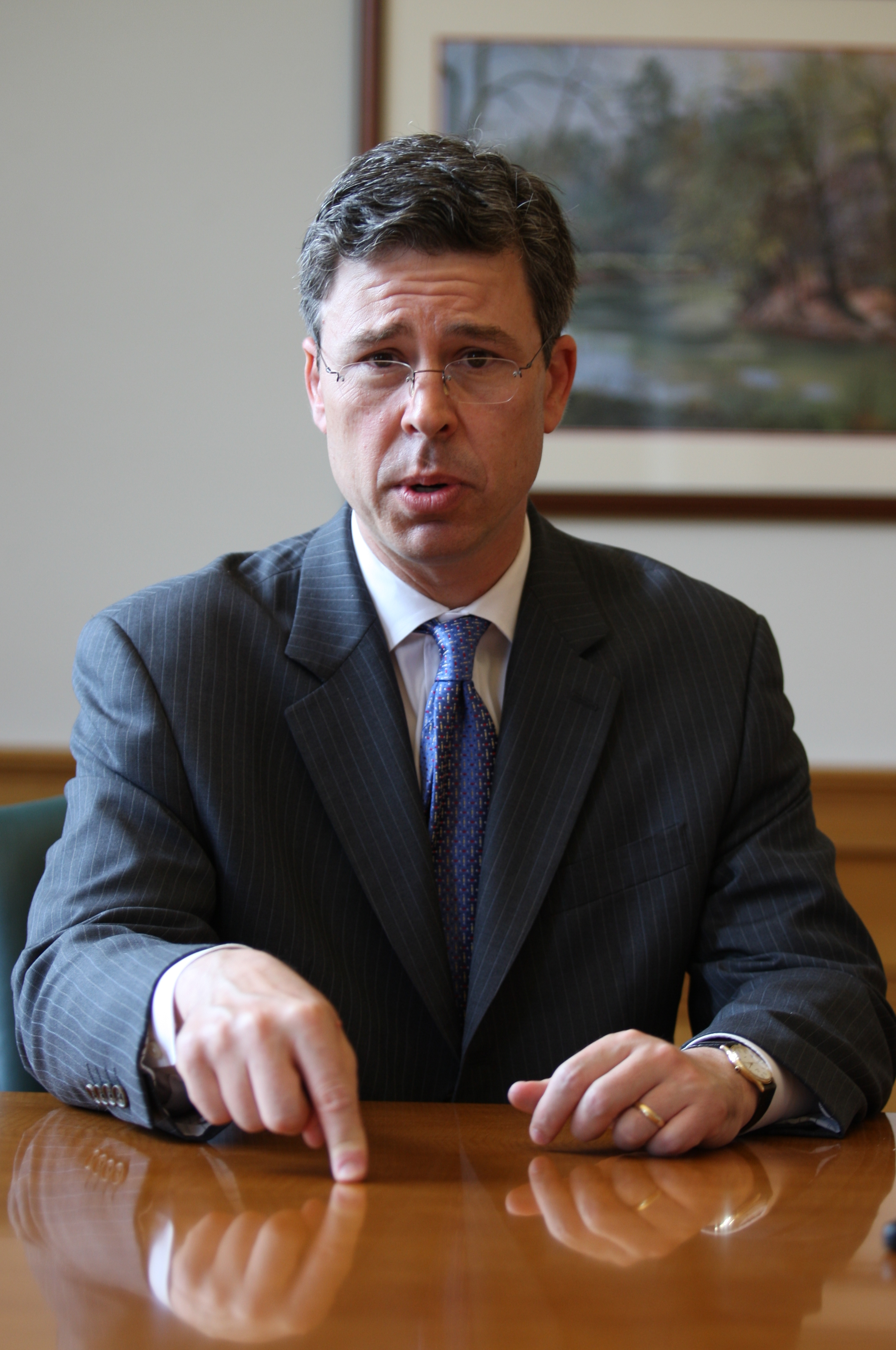Borrowing to fund city pensions can be risky, finance experts say
Thursday, October 17, 2013
Despite what finance experts say is a significant risk, cities across the nation continue to borrow money to bolster their employee retirement accounts.
Nashville was the latest to consider such a move, but Mayor Karl Dean's administration withdrew the proposal Oct. 12 in the wake of intense criticism.
That city had considered borrowing $200 million to help reduce a nearly $400 million unfunded liability in its pension plan.
Critics say borrowing money to invest in pension funds is a big risk, and they point to cities where pension bond deals turned disastrous and helped contribute to major financial difficulties, including municipal bankruptcy.
Stockton, Calif., is one of the most high-profile examples. The city borrowed money to shore up its retirement fund, only to see millions in investment losses.
Mayor Andy Berke has said something must be done to reduce the city's unfunded liability while fulfilling its obligations to Chattanooga's police and fire pension fund, which is nearly 60 percent funded.
Berke has commissioned an 18-member board to study the fund, which faces a $150 million shortfall.
The possibility of borrowing money to reduce the city's unfunded liability was brought up by the pension board's actuary at this month's task force meeting.
Funneling $56 million into the fund through a one-time obligation bond would raise the funding level to 80 percent, the actuary estimated. It would take $132 million to fund the plan fully, estimated the board's actuary, The Segal Company.
The pension board that manages the police and fire retirement fund supports the bond option as one possibility, with board President Chris Willmore saying that's the quickest way to reduce unfunded liability and give the city lower payment contributions in the years to come.
But Berke's chief of staff, Travis McDonough, said borrowing to get out of debt is not the city's first option to stabilize the retirement fund.
"If there's a convincing case to be made [to issue bonds] I'm still waiting to hear it," McDonough said.
Pension funds took a beating in the stock market during the recession, and combined with increasing numbers of retirees - and in some cases extra benefits given during boom years - have seen their unfunded liabilities grow.
That's the difference between how much money a pension fund has compared to its ability to meet current obligations and future promises to employees.
To reduce that gap, cities from coast to coast have borrowed money. But issuing what are called pension obligation bonds carries significant risk, and finance experts warn cities not to enter into the deals lightly. The Chicago-based Government Finance Officers Association has issued an advisory cautioning cities on their use.
"It is a quick fix," said Jeffrey Esser, the association's executive director. "It is viewed as less painful than making the hard choices to fund a pension plan."
Those tough choices include raising taxes and cutting city services to pay more into retirement accounts.
In the red
Borrowing money to bolster a pension fund works like this: A city issues bonds, locks in a favorable interest rate, invests the proceeds with the rest of its retirement funds and banks on investment returns exceeding the financing costs.
But those plans haven't always worked out. In a 2010 report, the Center for Retirement Research at Boston College found that after the recent financial crisis, most pension obligation bonds issued since 1992 were in the red.
The bonds, researchers found, could prove useful if a city were in a strong financial position and able to shoulder the risk without hurting its fiscal health. But cities in the greatest fiscal stress turned out to be the ones most likely to issue the bonds, the researchers found.
Stockton, Calif., in 2007 issued $125 million in bonds to help cover a pension shortfall. It invested them with the California Public Employees Retirement System, the nation's largest public pension fund.
But the system saw big losses during the recession, and the value of Stockton's investment dropped to less than $100 million. Yet the city was still on the hook to bondholders for the full amount, plus interest. The deal and other bond obligations were significant factors in the city's decision to seek bankruptcy protection.
"All of that money is going to go into the stock market, and it is subject to the whims of the stock market," said Marcia Fritz, executive director of the California Foundation for Fiscal Responsibility, which has tried to rein in lavish pension plans through reforms in a state that has been at the forefront of the issue.
"I thought these pension bonds had gone the way of the dinosaurs."
Fritz said pension bonds put "the burden of payoff onto the next generation."
Forging ahead
Still, cities have forged ahead with borrowing money to shore up their retirement plans.
Franklin, Tenn., this year agreed to issue $10 million in bonds to invest in the city's pension fund.
Elsewhere, the Connecticut towns of Hamden and Stratford agreed this year to borrow up to $125 million and $220 million, respectively, to shore up their pension plans.
Last year, Fort Lauderdale, Fla., issued $337 million in bonds to cover a $400 million unfunded liability in two separate retirement funds.
And Oakland, Calif., the city believed to have issued the first pension obligation bond in 1985, again used them last year to pump more than $200 million into the city's retirement account for police and firefighters.
Fort Lauderdale City Manager Lee Feldman said recently that his city received a 4.16 percent interest rate on the bonds, far below the rate of more than 7 percent the city was paying on its unfunded pension liabilities.
He said the city did not use the bonds to cover its normal contributions.
"I would never recommend funding the normal retirement costs through a pension obligation bond. That to me is very, very risky," Feldman said.
A 'calculated move'
In Nashville, officials said they withdrew the bond plan amid concerns that it was too confusing for council members and over worries that the city was being unfairly compared with others that have not properly funded their pension plans.
Before withdrawing the proposal, Metro Finance Director Rich Riebeling said the city did not have to borrow the money. He said the bond proceeds would not have replaced the city's regular payments to the pension fund.
Riebeling said the city is in good financial shape and its pension plan is 84 percent funded, although the $395.6 million unfunded liability has more than tripled in the past 10 years.
The city has always made its payments, and the bond proposal, Riebeling said, was a "calculated move to make a good plan a little bit better."
Staff writer Joy Lukachick contributed to this story.
Contact Duane W. Gang at 615-726-5982 or dgang@tennessean.com.


